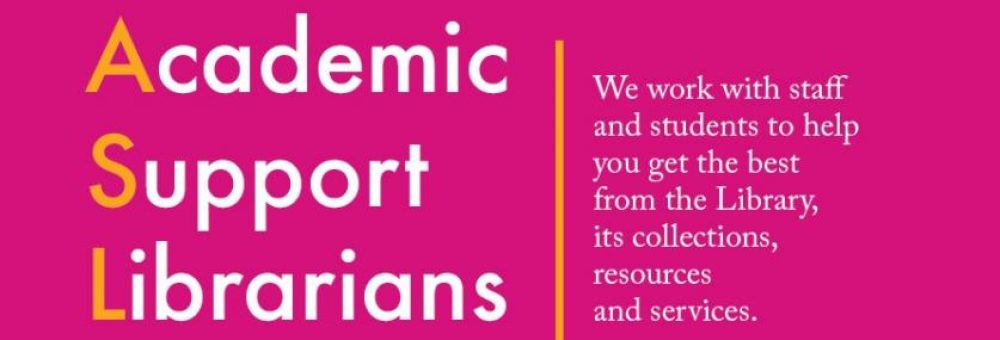
UNIVERSITY OF EDINBURGH CENTRAL CAMPUS, LIBRARY.
Everybody’s talking about AI and Chat GPT – what will they mean? I attended an event on 20.4.2023 organised by the Information School Sheffield University which explored this question for libraries.
Dr Andrew Cox introduced the session, reminding us that chatbots & AI have featured heavily in the news recently, and of course have existed in scifi for some time.
What might AI look like in the library?
From what we’ve learnt about AI it will have a wide and deep impact on library service and backend operations and library information literacy. We’ll see new features like library chatbots, text and datamining support and automation of systematic reviews. Knowledge discovery of collections will change, with a new paradigm of search : instead of giving a list of results, ChatGPT will give an answer. Users expectations of what a search looks like will change dramatically. There may be an impact on library jobs (although the decline of the librarian has been forecast for many years since the arrival of the internet, and librarians have evolved and thrived). Changes to the workforce will probably be complex and driven by sector.
Fundamentally we should remember that AI is only as good as the data it relies upon. Our library expertise in finding and managing data in a complex information landscape, and in determining the provenance and quality of data remains key. Also, libraries’ work in supporting sharing, openness and interoperability of data is vital as this data becomes available for AI to use.
How should library professionals respond?
The CEO of the Chartered Institute for Library and Information Professionals (CILIP), Nick Poole felt it was very important not just to problematize new technologies. Currently there is a flowering of AI applications and the emergence of lots of possibilities. Somewhere in there the next Google will be found. Library professionals should:
- Provide quality open access content – the more quality open access content we can provide AI the more quality content our users can get out
- Be agile in learning about ChatGPT – rather than teaching search strategies in future we will be teaching AI query statements.
- Help people to think critically about AI and question it – need for critical literacy to be on the curriculum.
- Support our users and each other to use these new tools as they develop. The half life of the library skillset could be 2 years.
Our ethical response should be:
- Person-centred – focused on the user
- Inclusive – adapting an informed approach to counter bias
- Informed and evidence based – geared towards helping information users to navigate the hype cycle
- Critical & reflective – understanding our own biases and their impact
- Accountable – focused on trust, referencing and replicability
- Creative – helping information users to maximise the positive benefits of AI augmented services
- Adaptive – enabling us to refresh our skills and expertise to navigate change
What is the impact on the education sector?
Sue Attewell, JISC Head of Edtech, talked about Generative AI and the potential impact on education. Libraries are not alone in facing the challenges of ChatGPT – teachers, academics and educators are facing it too. The media focus has primarily been on the challenge to assessment and this can interface with post-covid recovery anxieties – e.g. we can control this by putting students in a face to face classroom with no IT access. Right now there’s a lot of discussion around assessment and policy – although calls for better assessment have been taking place for some time
The potential response tactics are: Avoid, outrun, embrace. Realistically we can’t do no 1 and 2 – so we must embrace AI. AI is rapidly getting built into all the tools we use. We need to spend time thinking about impact of the tools. It’s so new there is no bank of research to rely on to tell us what works. We shouldn’t feel the need to rush into using it in teaching – things are changing rapidly and the final picture isn’t clear.
How can AI help educators?
- Extending capability – diagnosing learners needs
- Increasing capacity – reducing workload, e.g. MS CoPilot
- Continued importance of information literacy skills – how do students know that what’s generated via AI is right?
- Help creation of teaching and learning activities and assessments
What is the impact of AI for the future library strategy?
John Cox, University Librarian, University of Galway outlined some of the anxieties libraries face about AI and ChatGPT. These include anxiety about our jobs being replaced, lack of confidence with new technology, hesitation to move quickly, and ethical concerns about surveillance and intellectual property and risk of algorhythmic bias.
The Library has several assets to support the adoption of AI technologies. The Library has social capital, with library staff enjoying trust and integrity that has accumulated over time, and its centrality on campus builds relationships. Collaboration is a traditional strength of libraries and the library often plays a strong bridging connector role across campus. The Library is a repository and an enabler of data – and AI research needs want text, data, case studies.
We can imagine a future library making use of helpful AI. Smart building technology can enable data monitoring and data informed decisions, bookbot technology could help provide materials.
Useful links
IFLA SIG on AI : Resources for getting up to speed on AI in 2023 https://www.ifla.org/g/ai/23-resources-to-get-up-to-speed-on-ai-in-2023/
CILIP report on impact of AI and machine learning : htps://www.cilip.org.uk/page/researchreport
JISC
Web: https://www.jisc.ac.uk/national-centre-for-ai
Blogsite:https://nationalcentreforai.jisciniolie.org/wp/
